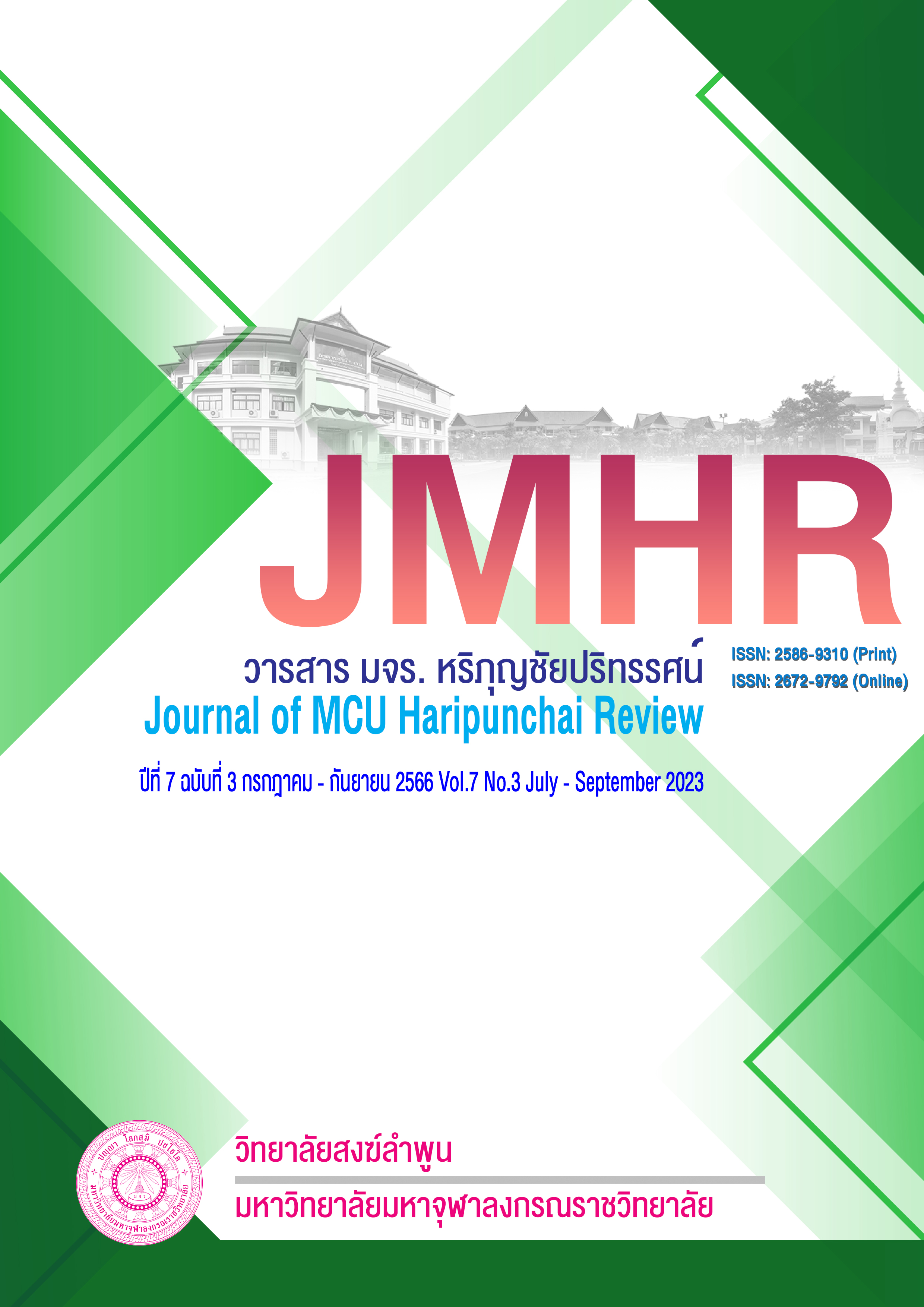Sappurisadhamma With Buddhist Organizational Management
Main Article Content
Abstract
This article paper has the objective to study about integrated Buddhist organizational management. The use of corporate management concepts and Buddhist principles as key ingredients to ensure effective and sustainable management of the organization. The managing an organization must be efficient and effective. Achieving the goals of the organization. It's all the key concepts adopted are inevitable when it comes to planning. Organization, structuring, command, coordination, and control. One of the necessities for effective organization management is the application of Buddhist principles. In particular, the 7 Sappurisadhamma that corporate executives must know the cause and effect of planning their operations, know how much potential they have and how much potential they have. Moderation in management that does not constrict subordinates. Know the timing of management, what to do, when, and choose the right timing. As well as having the skills to be a liaison with external networking organizations to become administrative partners. Look at the benefits that organizations can receive if we know how to associate with individuals, organizations, which will bring about the benefits of the organization. It brings about the success of the organization in good and quality management. It hopes not just for personal gain without paying attention to professional accuracy and fairness. That would entail ethical disparities for executives. And those responsible for the work.
Article Details

This work is licensed under a Creative Commons Attribution-NonCommercial-NoDerivatives 4.0 International License.
References
เกษม แก้วสนั่น และ เพ็ญศรี ฉิรินัง. (2564). “การจัดการองค์กรไปสู่ความสำเร็จ”. วารสารพุทธสังคมวิทยาปริทรรศน์. 6(4) : 88.
ฉัตรชัย แนวพญา. (2015). “การบริหารจัดการองค์การภาครัฐที่ประสบความสำเร็จตามหลักการบริหารทางตะวันตกและตามหลักการทางพระพุทธศาสนา”. JOURNAL OF NAKHONRATCHASIMA COLLEGE. 9(2) : 19.
ติน ปรัชญพฤทธิ์. (2555). การบริหารการพัฒนา : ความหมาย เนื้อหา แนวทางและปัญหา. พิมพ์ครั้งที่ 13. กรุงเทพมหานคร : โรงพิมพ์แห่งจุฬาลงกรณ์มหาวิทยาลัย.
ธงชัย สันติวงษ์. (2543). องค์การและการบริหาร. พิมพ์ครั้งที่ 11. กรุงเทพมหานคร : ไทยวัฒนาพานิช.
พระครูสมุห์ไพฑูรย์ พนมสวย และคณะ. (2562). “การบริหารสมัยใหม่กับการบริหารเชิงพุทธศาสตร์”. วารสาร มจร. หริภุญชัยปริทรรศน์. 3(2) : 127
พระครูสุชัยพัชรมงคล (วิษณุ ตปสมฺปนฺโน). (2563). “การบริหารจัดการองค์กรเชิงพุทธธรรม”. บัณฑิตศึกษาปริทรรศน์ วิทยาลัยสงฆ์นครสวรรค์. 8(3) : 259.
มหาจุฬาลงกรณราชวิทยาลัย. (2539). พระไตรปิฎกภาษาไทย ฉบับมหาจุฬาลงกรราชวิทยาลัย.
กรุงเทพมหานคร : โรงพิมพ์มหาจุฬาลงกรราชวิทยาลัย.
สมคิด บางโม. (2546). องค์การและการจัดการ. กรุงเทพมหานคร : วิทยพัฒน์.
เสาวลักษณ์ โกศลกิตติอัมพร และ สัญญา เคณาภูมิ. (2559). “หลักการเบื้องต้นเกี่ยวกับองค์การ และการจัดการ”. วารสารวิชาการแพรวากาฬสินธุ์ มหาวิทยาลัยกาฬสินธุ์. 3(1) : 182.


